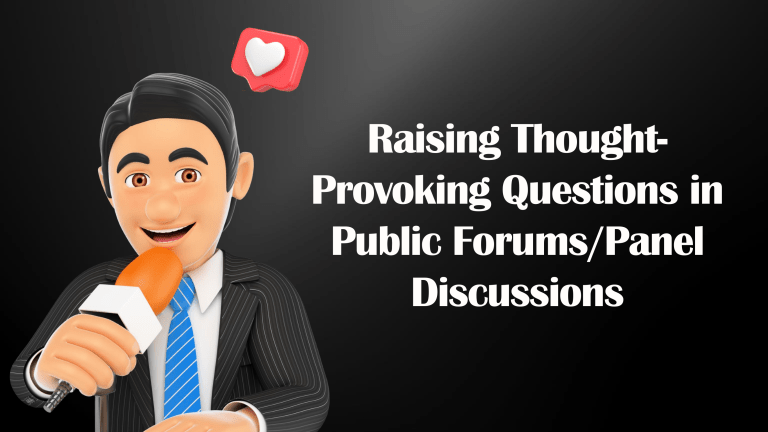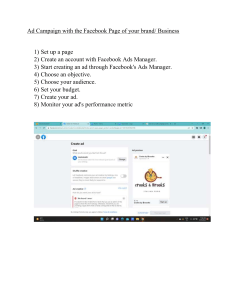
Raising ThoughtProvoking Questions in Public Forums/Panel Discussions Panel Discussion • A group of people discuss a subject in front of an audience. • Includes a moderator who is in charge of guiding the panelists (group of experts) in answering important questions and share insights about certain issues. • It happens in television shows or academic conferences where the audience is supposed to listen to every speaker and only ask questions when the moderator directs them to do so. Public Forum • also called open forum • It is a situation in which people may discuss about an issue or a topic of public interest. • It is where the people are free to express their thoughts/ideas. This means that the audience in this gathering will take part in a conversation about a specific subject or issue. “The key to powerful thinking is powerful questioning” Kinds of ThoughtProvoking Questions problem-solving process questions that make the other person assess, diagnose, and think of a possible action. Examples: • What is the issue or problem at hand?”(assess) • What is the root cause of this issue or problem?”(diagnose) • How can we solve the issue?” (think of a possible action) How can the covid problem can be solved? compare and contrast questions about similarities and differences between ideas Example: • What are the differences between traditional media and social media? What are the differences between distance learning and face to face learning? interpretive → evaluative questions about intention or goals of the author, creator, character etc. Example: • What is the purpose of the author in writing the story? What is the importance of learning English? conceptual changes questions based on self -reflection; encourage to express opinion about the subject of the question Example: • Which do you think is better? Which do you like better, English or Math and why? personal exploration questions based on one’s personal idea or exploration; encourage personal connection with the subject of the question Example: • How important is a flower to you? Who is your favorite teacher and why? moral/ethical dilemmas questions that make the other person think whether something is morally or ethically correct Example: • Is it okay to let another person answer your module for you? Why or Why not? Do you need to do what is right even when no one is looking? moral/ethical dilemmas Is it okay to get things that are not yours? problem-solving process How would your parents handle their misunderstandings? Compare and contrast How is American English different from British English? Interpretive/ evaluative What is the purpose of the story “The Parable of Colors”? Conceptual changes In the story, which do you think is the best color? Personal exploration How would you describe your family? ___________1. What is the purpose of writing Fake News on Facebook? ___________2. What would you do if someone openly criticize you on Facebook? ___________3. What is the difference between constructive criticism and bullying on Facebook? ___________4. Is it ethical to express and pour out your anger over someone on Facebook where everyone can read them? ___________5. How can we be responsible and wise social media users?

